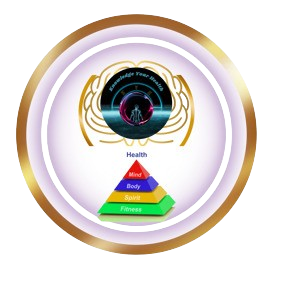Potassium: The Electrolyte Essential for Heart and Muscle Health
Potassium is a vital mineral and electrolyte that plays a crucial role in maintaining optimal health and well-being. Despite its importance, potassium often doesn’t receive as much attention as other minerals like calcium or magnesium. In this guide, we’ll explore the significance of potassium, its healing dosages, and where you can find this essential mineral in your diet.
Why is Potassium Important?
1. Heart Health: Potassium helps regulate heart rhythm and blood pressure, supporting cardiovascular health and reducing the risk of heart disease and stroke.
2. Muscle Function: Potassium is essential for muscle contraction and relaxation, supporting overall muscle function, mobility, and strength.
3. Fluid Balance: Potassium works alongside sodium to maintain proper fluid balance within the body, helping to regulate hydration levels and prevent dehydration.
4. Nerve Function: Potassium plays a crucial role in nerve transmission and communication, facilitating the sending and receiving of signals between the brain and various parts of the body.
5. Metabolism: Potassium is involved in energy production and metabolism, supporting overall vitality and cellular function.
Healing Dosages of Potassium
The recommended daily intake of potassium varies depending on age, gender, and life stage. Here’s a general guideline:
- Children (1-3 years): 2,000 mg
- Children (4-8 years): 2,300 mg
- Children (9-13 years): 2,500 mg
- Teens (14-18 years): 3,000 mg for males, 2,300 mg for females
- Adults (19 years and older): 3,400 mg for males, 2,600 mg for females
- Pregnant and Breastfeeding Women: 2,800-3,100 mg
It’s important to note that individual potassium needs may vary based on factors such as dietary intake, lifestyle, and health status. However, excessive potassium intake, especially from supplements, can be harmful, so it’s essential to stay within the recommended daily limits unless otherwise advised by a healthcare professional.
Food Sources of Potassium
1. Fruits: Bananas, oranges, cantaloupe, apricots, and strawberries are excellent sources of potassium.
2. Vegetables: Potatoes, sweet potatoes, spinach, tomatoes, broccoli, and Brussels sprouts are also rich in potassium.
3. Legumes: Beans, lentils, and peas are good sources of potassium.
4. Dairy Products: Milk and yogurt contain potassium, although the calcium in dairy products can affect potassium absorption.
5. Fish: Salmon, tuna, and cod are rich in potassium.
6. Nuts and Seeds: Almonds, pistachios, sunflower seeds, and chia seeds are also sources of potassium.
7. Whole Grains: Whole grains like brown rice, oats, quinoa, and whole wheat are good sources of potassium.
Conclusion
Potassium is an essential mineral and electrolyte that plays a crucial role in supporting heart health, muscle function, fluid balance, nerve function, and metabolism. By incorporating potassium-rich foods into your diet, following the recommended daily intake guidelines, and maintaining a balanced diet and lifestyle, you can ensure adequate potassium intake and support overall health and well-being. However, it’s always best to consult with a healthcare professional or registered dietitian to determine the appropriate potassium intake tailored to your individual needs and preferences, especially if you have underlying health conditions or are taking medications that may affect potassium levels.
